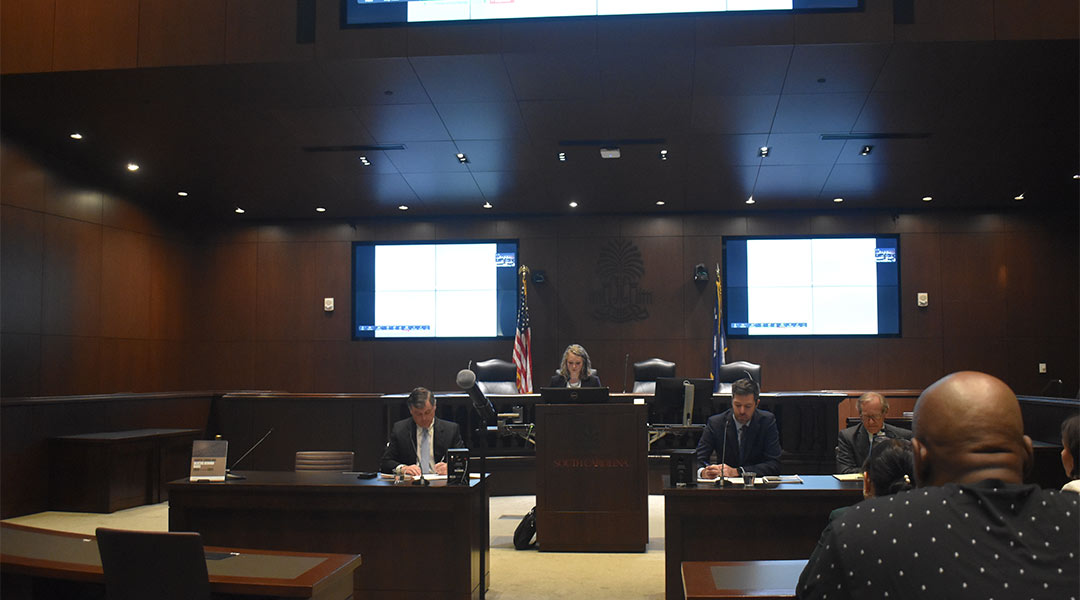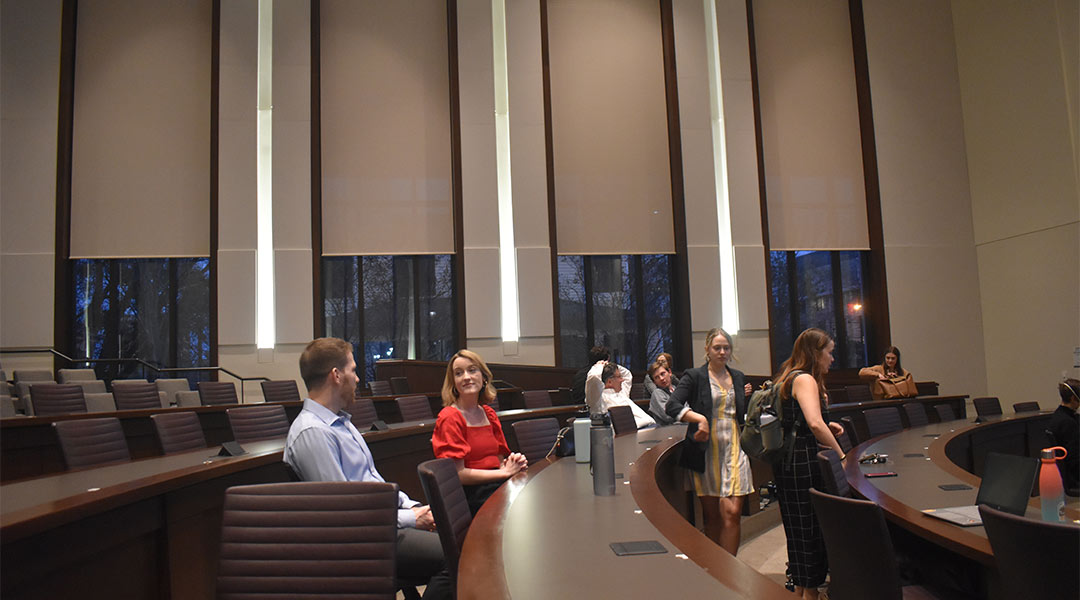The new report showed a spike in prison deaths in 2020 and found many deaths were among aging detainees. (Photos by Bridget Frame)
A new report shows how – and how many – people died behind bars in recent years in South Carolina.
At least 777 people died in 52 prisons, jails and state detention centers between 2015 and 2021, according to the report from researchers at the University of South Carolina School of Law.
Students in the 8th Amendment Law and Litigation class worked on the report with their professor. They submitted public records requests to correctional facilities across the state.
The work is the first comprehensive collection and analysis of deaths in S.C. correctional facilities, according to the report.
“There’s a lot of opacity just by the nature of jails and prisons,” professor Madalyn Wasilczuk, who wrote the report, told the Carolina News and Reporter. “They’re behind fences, they’re secured facilities, they’re out of the public eye,”
The report showed medical causes, often among aging detainees, were the highest cause of death, with suicide being the second highest.
But the project comes on the heels of a controversial death at Richland County’s Alvin S. Glenn Detention Center. Antonius Randolph, who was awaiting a bond hearing on charges of burglary and the sexual assault of at least five women, was killed Jan. 27. Five other men being held at the jail have been charged in connection with the death, according to media reports.
Richland’s jail for several years has been under fire due to allegations of poor security, inhumane conditions and a lack of resources for incarcerated individuals.
The students’ report was released in an effort to improve transparency within the wider S.C. detention system.
The information used in the report, inspired by Loyala University’s Incarceration Transparency project, comes from 196 public records requested by USC. The students queried 196 facilities and received 161 responses.
All the records used in the report are available online,
The report was presented Feb. 24 at the USC School of Law. A panel discussion followed the presentation.
Wasilczuk moderated the panel of assistant U.S. attorney Benjamin Garner, civil rights lawyer Stuart Andrews and Bryan Stirling, who is director of the S.C. Department of Corrections.
The group discussed the report then pivoted to larger issues facing the incarceration system.
Stirling spoke about the importance of support for formerly incarcerated individuals when they are released.
“What we’re doing now is getting people that education, getting people connected with community support when they leave our re-entry efforts,” Stirling said during the presentation.
Understaffing has become a pressing issue facing correctional facilities, with problems arising from a lack of correctional officers and staff, panel members said.
With many facilities located in rural areas, it can be difficult to fill facilities’ jobs.
“We don’t have the professionals that live in those areas,” Stirling said. ” We’ve got to figure out a way to get them there and incentivize them to come in. We work with legislators to get raises, to be competitive, to get people to come work for us.”
The understaffing has a domino effect on detainee and inmate care, the panelists said.
Andrews is representing Disability Rights South Carolina in a federal lawsuit against Alvin S. Glenn and Richland County. The lawsuit alleges unsanitary and unsafe conditions for detainees.
Andrews spoke about how different variables create an unsafe environment for people being held.
“The cells are often – too often I’ve seen them – filled with toilets that are running over with human waste, on the floor, in the toilets, that walls are smeared with blood and urine and feces,” Andrews told the audience. “There’s just not enough staff to clean them up.”
Mental health and aging in the system was another factor that came up. Issues with staffing and healthcare have made caring for aging individuals and individuals with mental illness harder.
The report highlighted the increasing number of aging individuals who are incarcerated in South Carolina. Facilities have to address a variety of healthcare needs because of this.
“With people that get older, there are things that you have to take care of,” Stirling said. “They have heart disease, cancer, diabetes – and you name it – we have it in the prison system.”
The panelists and Wasilczuk said they hope the report’s findings help those who are working to improve incarceration conditions and bring increased transparency.
“We want to make sure these folks are safe,” Stirling said.




